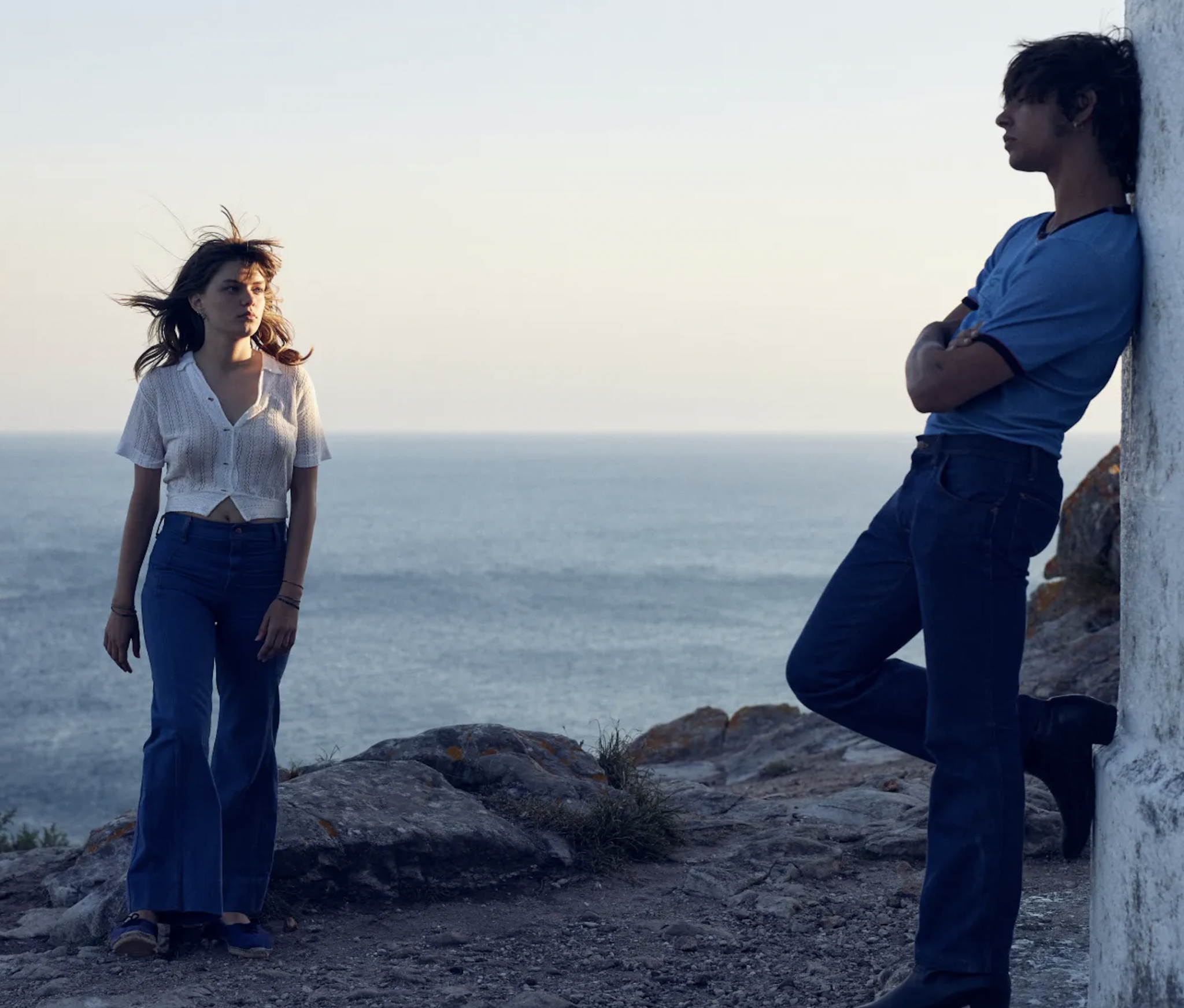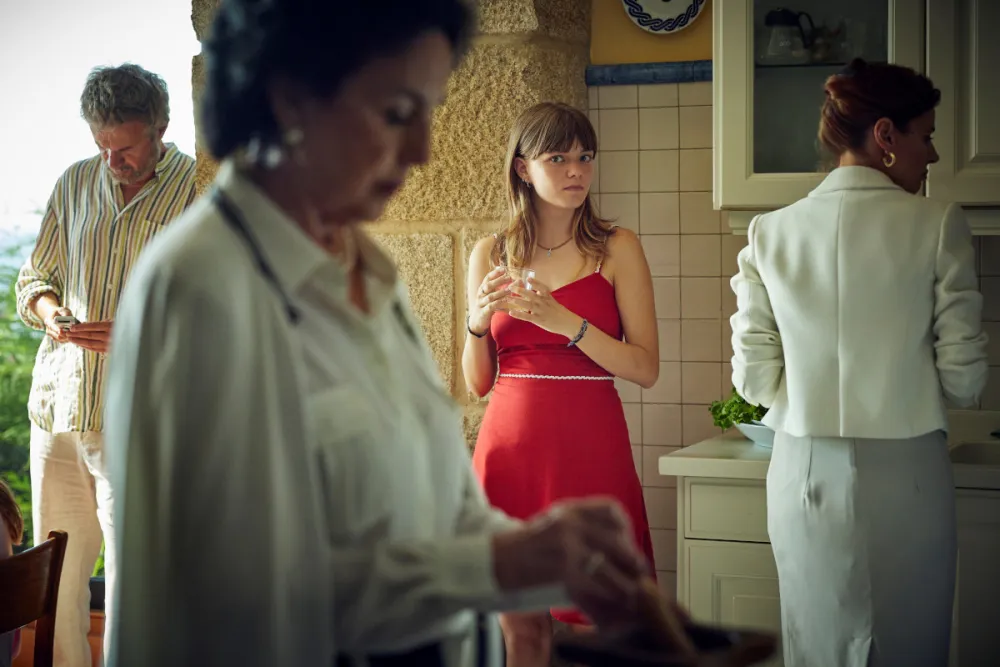
Romería, the latest from the Spanish director is a semi-autobiographical exploration of AIDS, family and identity.
Carla Simón lost her parents young. Her father passed away when she was three-years-old, her mother at age six—both from AIDS. Family looms large in the director’s films, mining her difficult past as far back as her 2017 debut Summer 1993, about a young girl adjusting to a new life after her mother passes. Simón’s deeply thoughtful Romería is less concerned with the immediate feeling of loss and more with how that pain continues to simmer long after. Grief is a constantly mutable, unintelligible emotion that can only be made sense of once the memories, however hazy and unreliable, are pieced together.
The title of Simón’s film derives from the Spanish word for pilgrimage, specifically a spiritual mission for the religious. For 18-year-old Marina (Llúcia Garcia), her journey takes her to the town of Vigo on the Galican coast, where she meets her biological family to secure a signature for a university scholarship. Marina (an aptly aquatic name) has an immediate affinity for the crystal blue water that may well have been inherited from her sailor father. She wouldn’t have known this though—in Simón’s semi-autobiographical work, Marina’s parents died from AIDS, and her pilgrimage is as much about discovering where she comes from as much as her ostensible reason for her visit.
Like Marina’s fragmented memories, Romería takes on a splintered structure: title cards introduce each new day she spends with her extended family, and homely interludes shot on Super 8 film are interspersed throughout. The film is a kind of memory poem, with Marina piecing together the contradictory recollections her relatives have of her parents. The clearest picture of her family’s past comes from her mother’s evocative diaries inspired by Simón’s mother’s own letters, which detail her carefree escapades with Marina’s father. Together, they swim naked, sunbathe and revel in their freedom before it’s cruelly taken away from them.

A still from Romería, directed by Carla Simon
If her relatives’ memories have anything in common, it’s resentment and anger. Even years later, they still grasp onto the stigma around AIDS. Marina’s cousins covertly inform her that, once her father contracted the virus, her grandparents would lock him in the house—like a secret made to be buried. Her paternal grandparents are adamant they never did such a thing. These confrontations are handled delicately while still remaining brutal in their frankness. At one point her cousins—who innocently don’t know any better—tell her they’ve been warned to never touch her blood. Shame reverberates through the entire family.
With the help of cinematographer du jour Hélène Louvart, Simón captures the Spanish coast in all its tranquil beauty. All cosy villas, clear shimmering waters and sun-dappled shores, but as Marina discovers more about her family, her surroundings lose their idyllic sheen. The truth can be a painful thing, but for Marina, being faced with the cold reality of her lineage is as harsh a truth as the story of her parents. Memory becomes a process of identity reconstruction—would Marina be the same person if she had grown up with her father’s family? Or was she meant to live on this path? Romería is full of those questions of what if, all rendered with Simón’s signature soft, melancholic touch.





